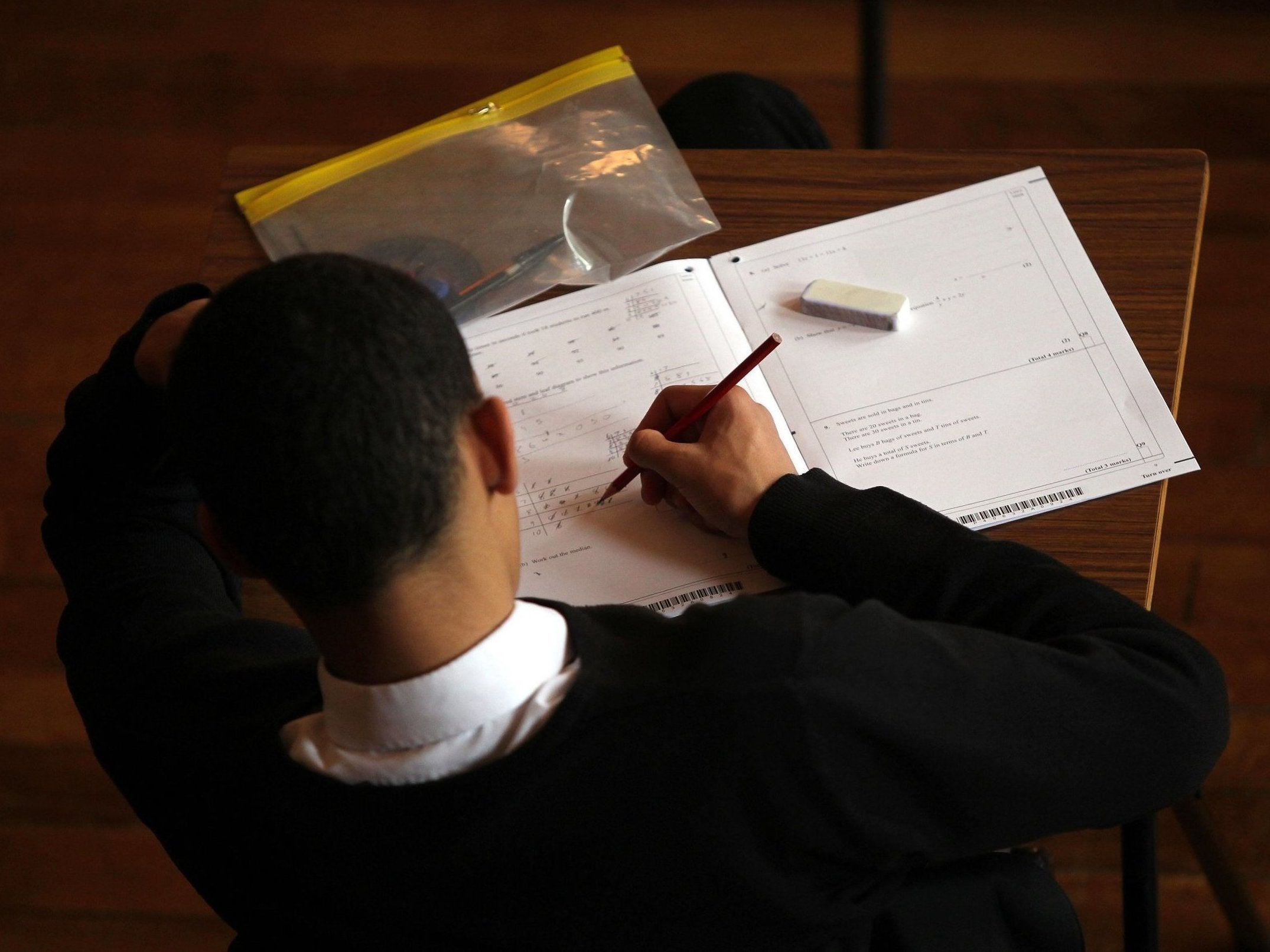£15m handed to grammar schools to widen access despite concerns it does not boost diversity
Campaigners are calling for government fund to be abandoned amid claims it has failed, writes Eleanor Busby


Nearly £15m of government funding has been handed out to a group of grammar schools to boost the number of disadvantaged pupils they admit, despite concerns the initiative does not help diversity.
Six grammar schools in England have been awarded a share of £14.3m of cash to create more than 1,100 additional places for pupils, the Department for Education (DfE) has announced.
The Independent revealed only 22 more pupils from poorer backgrounds sat the 11-plus exam last year in the selective schools awarded a share of the government’s expansion fund.
Some of the grammar schools awarded funding saw the number of disadvantaged children applying for entry drop last year, prompting criticism that the government’s policy to boost social mobility had “failed”.
But the government has given the green light to the second wave of grammar schools to share the Selective Schools Expansion Fund. Four of the six schools are in the constituencies of Conservative MPs.
Some £50m of cash was available to schools this year, but the full figure was not allocated. More than three in four of the grammar schools who applied for the fund were rejected by the government.
Existing grammar schools can only secure the additional cash if they can show they have robust action plans in place to improve access for disadvantaged children, and there is a demand for extra places.
Dr Nuala Burgess, educational expert at King’s College London, said: “The fact only six schools have been awarded funding is telling. Only £14m out of the £50m pot has been awarded, and we believe the relatively small awards this year is due to the fact that grammar schools are unable or unwilling to raise their numbers of disadvantaged pupils.
“It is a key condition of the Selective Schools Expansion Fund that they increase proportions of disadvantaged pupils, but it is still the case that grammar school places are often being filled by children from middle-class families.
“The Selective Schools Expansion Fund was intended to boost the numbers in grammar schools but it has failed in its mission and should be abandoned.”
Paul Whiteman, general secretary of school leaders’ union NAHT, said he opposes additional cash being given to just a handful of selective schools amid the current “funding crisis”.
He said: “The government cannot point to a single piece of evidence that shows a strong educational benefit of expanding selection at 11. And yet there’s a wealth of evidence that suggests selective education actually widens the achievement gap between poor pupils and their more affluent peers.
“This money should be spent for the benefit of all children, not just the tiny number who attend grammar schools. Funds like this would have much more impact on opportunities for disadvantaged young people targeted either in the early years or at schools which, at present, they typically attend.”
Geoff Barton, general secretary of the Association of School and College Leaders, said increasing the number of selective school places “potentially destabilises non-selective schools” because they lose more high-attaining pupils.
He added: “It is damaging to the morale of children, parents and staff, and makes teacher recruitment to these schools more difficult.”
A study, released by the government at the same time as the funding announcement, suggests that the demand for grammar school places outstrips the numbers available.
In 2019, for every 15 children whose first choice of secondary school was a grammar, around 10 places were on offer, according to research published by the DfE.
The study found grammar schools were given as a first choice 37,786 times. But there were only 25,827 places offered – a gap of 11,959 places.
Nick Gibb, school standards minister, said: “This investment will give even more young people, from all backgrounds, the chance to learn at some of the highest-performing schools in the country – benefiting from the world-class education they offer.
“Successful schools are also required to work with neighbouring schools to share expertise so that opportunities can be improved for as many young people as possible – as part of our continued efforts to drive up standards.”
Join our commenting forum
Join thought-provoking conversations, follow other Independent readers and see their replies
Comments